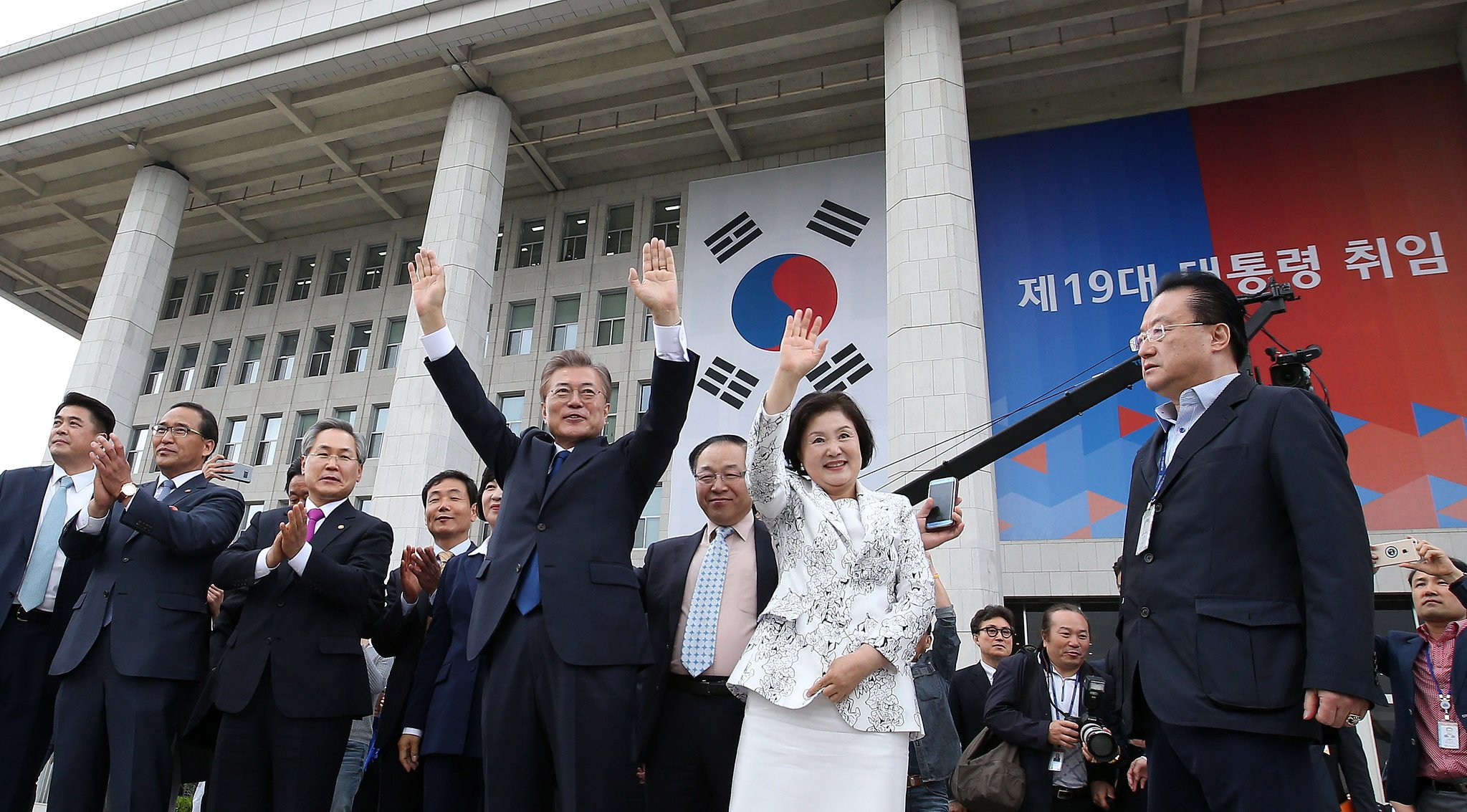Tension is rising as North Korea launched its second missile test in a week, days before the South Korean presidential election on March 9, 2022. Lee Sung-yoon, a North Korea expert at the Fletcher School at Tufts University, commented that North Korea has often in the past attempted military provocations to influence elections in South Korea, including launching a rocket a week before the December 2012 presidential election, thus “[now], with all eyes on the Ukraine crisis, is an opportune time for North Korea to create more problems for the U.S. and meddle in South Korea’s election.”
CURRENT POLITICAL CLIMATE
While domestic and other economic issues dominate the campaign, North Korea’s ongoing missile activities and foreign policy matters are also expected to weigh on public sentiment. After a month of missile testing in January with 10 launches and despite a series of high profile engagements with South Korean President Moon and former U.S. President Trump respectively, Kim Jong-un’s regime is reported to own around 60 nuclear bombs and intercontinental ballistic missiles capable of destroying any U.S. city.
In preparation for South Korea’s administration change, Pyongyong’s aggressive foreign policy is speculated to serve as an assurance against any possible result in the election. In particular, an aggressive policy provides a strong guarantee for North Korea’s national security in the event the conservative candidate wins and potential engagement between the two Koreas becomes highly unlikely. With an objective to strengthen national security, North Korea’s military capabilities would prove its power to overcome political and economic sanctions imposed by the international community, as well as the pandemic and natural disasters within the nation. On the other hand, if the progressive candidate wins, North Korea’s aggressive foreign policy would place it at an advantageous position with bargaining power to push the newly elected president to reduce tensions arising from the escalating inter-Korean crisis by adopting diplomacy more similar to the current Moon administration.
President Moon Jae In at his inauguration. (Korea.net)
THE 2022 PRESIDENTIAL CAMPAIGN
The front-runners for the 2022 election are Yoon Seok-youl of the Conservative People Power Party and Lee Jae-myung of the ruling Democratic Party. Polls revealed that Yoon and Lee are running neck and neck, with Lee’s public approval rating at 38 percent and Yoon’s at 37 percent in a survey of 1,000 adults conducted on February 25, 2022, and a tie at 35 percent in another survey from early February 2022.
Yoon stands firm with his conservative predecessors in demanding North Korea’s denuclearisation as a prerequisite for peace talks and economic engagements between the Koreas. In late November 2021, Yoon stated that he would consider cancelling the symbolic inter-Korean 2018 Comprehensive Military Agreement, a critical diplomatic legacy of President Moon, if North Korea does not change its attitude, as he would not seek a summit with Kim Jong-un “just for show.” In January 2022, Yoon alarmed many by advocating a pre-emptive military strike to stop North Korean hypersonic attacks. His emphasis on resuming joint military exercises with the U.S., which have been scaled down since 2018, is likely to anger Kim Jong-un. Khang X. Vu, East Asian politics specialist at Boston College, commented that Yoon’s position is “harsh enough to make North Korea abandon diplomacy altogether, as it was the case during the tenures of Lee and Park.”
In contrast, Lee supports Moon’s gentle approach in forming diplomatic relations and engaging in economic cooperation with the North as a means of initiating denuclearisation, promising to ease existing sanctions upon North Korea’s compliance. In view of Yoon’s stance on a pre-emptive strike, Lee opined that “[a] lot of wars broke out not because of national interest, but because of such heated, emotional exchanges…[it is] important that we should not have any kind of unnecessary stimulation…that could escalate military tension.” Although Lee adopts a similar stance in trying to end the long-lasting Korean war in order to bring Pyongyang back to the negotiating table, Jenny Town, senior fellow at Stimson Centre told CNBC that Yoon is unlikely to copy Moon’s policies, “[while] Moon was personally heavily invested in engineering an inter-Korean summit, and trying to build sustainable, cooperative relations with North Korea, Lee is more likely to uphold the principle of peaceful coexistence while being reluctant to expend too much political capital on trying to achieve it, especially if Pyongyang is uncooperative.”
LESSON FROM UKRAINE
It is interesting to note that Ukraine was the world’s third largest nuclear weapons state and its scientists actually helped Pyongyang develop its missiles during the fall of the Soviet Union. From North Korea’s perspective, Ukraine made a mistake of trading its opportunity to have a nuclear deterrent to ensure its national security against attacks from Russia and the West. Following the Ukrainian invasion, “[the] chance of North Korea believing in U.S.-offered security assurance in return for nuclear disarmament—lock, stock and barrel—is now close to zero,” said Cheong Seong-chang, a senior fellow at Sejong Institute think tank. Since the U.S. is siding with Ukraine and it is now extremely unlikely to seek Russia’s consent for new U.N. Security Council sanctions against Pyongyang, Cheong noted that Kim’s regime would use this time to further develop nuclear weapons.
As tensions across the demilitarised zone escalate, a conservative win for South Korea’s presidential election could potentially ignite new frictions between the two Koreas. In the meantime, North Korea, China, and the U.S. are closely watching as South Korea unfolds its geopolitical fate on March 9, 2022.




